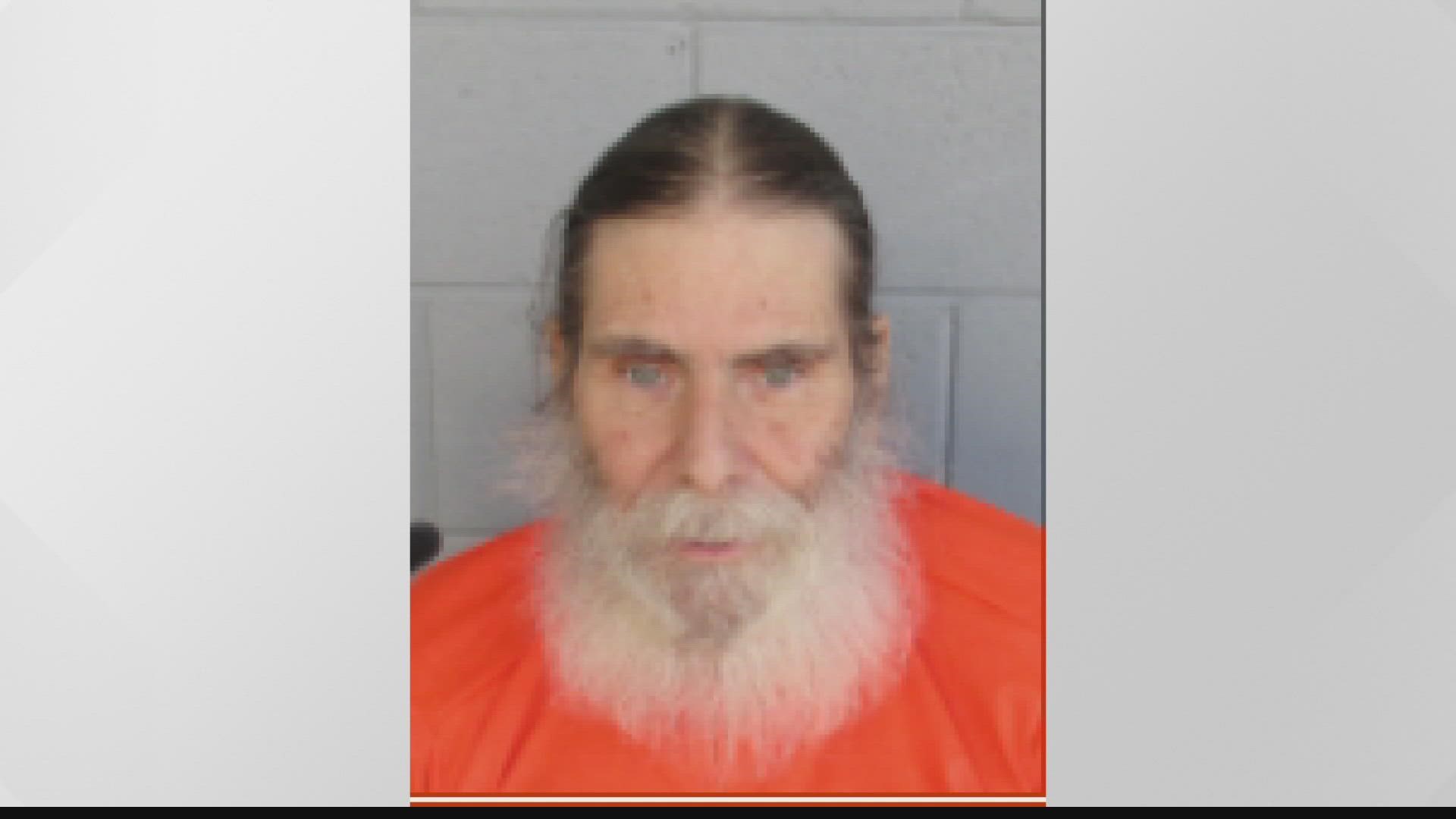PHOENIX — Editor's note: The above video aired in a previous broadcast.
A judge has denied an Arizona prisoner’s bid to delay his execution in the 1984 killing of an 8-year-old girl.
The ruling by U.S. District Judge Michael Liburdi keeps on track Wednesday's scheduled execution of Frank Atwood, who argued the state’s death penalty procedures would violate his constitutional right against cruel and unusual punishment by subjecting him to unimaginable pain.
His lawyers said Atwood, who has a degenerative spinal condition that has left him in a wheelchair would undergo excruciating suffering if he were strapped to a gurney while lying on his back during his lethal injection execution.
Liburdi said he would not block the execution based on Atwood’s claim, noting that the state will provide Atwood with a medical wedge that will relieve pressure on his spine and can also tilt the execution table. He said those accommodations “will minimize the pain Plaintiff experiences when he lies on his back.”
The constitution, Liburdi wrote, “does not require a pain-free execution,” and that his position will be similar to what he typically assumes in his cell to limit pain.
Liburdi also rejected challenges to the drug the state plans to use.
Atwood's attorneys have already appealed the judge's ruling to the 9th U.S. Circuit Court of Appeals.
"The State’s insistence on cyanide gas is a cynical choice to force the acceptance of the danger and incompetence of its lethal injection method, at the cost of embracing Nazi methods of mass extermination," Atwood's counsel, Joseph Perkovich, said in a statement.
"We have appealed the District Court’s decision and the issues are now with the Ninth Circuit, where briefing is being submitted and, we hope, oral argument will be heard."
Atwood was convicted of murder in the 1984 killing of Vicki Hoskinson.
Authorities have said Atwood kidnapped Hoskinson, whose remains were discovered in the desert northwest of Tucson nearly seven months after her disappearance. Experts could not determine the cause of death from the remains that were found, according to court records.
Atwood maintains that he is innocent of the crimes.
Until last month, Arizona went almost eight years without carrying out an execution. The hiatus has been attributed to the difficulty of securing lethal injection drugs as manufacturers refuse to supply them and to problems encountered during the July 2014 execution of Joseph Wood, who was given 15 doses of a two-drug combination over nearly two hours. Wood snorted repeatedly and gasped before he died. His attorney said the execution had been botched.
The hiatus ended on May 11 when the state executed prisoner Clarence Dixon for his murder conviction in the 1978 killing of Deana Bowdoin, a 21-year-old Arizona State University student.
As part of Atwood’s argument to get his execution delayed, his lawyers questioned whether the compounded pentobarbital to be used in the execution meets pharmaceutical standards and whether the state has met a requirement that the drug’s expiration date falls after the execution date. They also challenged Arizona’s protocol for gas chamber executions.
Prosecutors say Atwood was trying to indefinitely postpone his execution through legal maneuvers.
Two weeks ago, Atwood declined to choose between lethal injection or the gas chamber, leaving him to be put to death by lethal injection, the state’s default execution method.
Even though he didn’t pick the gas chamber, he still challenged the state’s lethal gas protocol that calls for the use of hydrogen cyanide gas, which was used in some past U.S. executions and by Nazis to kill 865,000 Jews at the Auschwitz concentration camp alone. His lawyers say hydrogen cyanide gas is unconstitutional and produces agonizing levels of pain in executions.
Without explicitly saying Atwood wants to die by the gas chamber, his lawyers argue he has a right to choose between methods of execution that are constitutional and said state should switch its lethal gas from hydrogen cyanide gas to nitrogen gas because nitrogen would produce painless deaths.
Arizona, California, Missouri and Wyoming are the only states with decades-old lethal-gas execution laws still on the books. Arizona, which carried out the last gas chamber execution in the United States more than two decades ago, is the only state to still have a working gas chamber.
In recent years, Oklahoma, Mississippi and Alabama have passed laws allowing executions with nitrogen gas, at least in some circumstances, though experts say it’s never been done and no state has established a protocol that would allow it.
Atwood’s lawyers also said Arizona could take up executions by firing squad -- a method of execution not used in the state.
Prosecutors say Atwood’s challenge of execution protocols is not aimed at minimizing the pain he will feel when he is put to death, but rather to delay the execution indefinitely by requesting alternative methods of execution that he knows the state is unable to provide without significant changes to its execution protocol and the state constitution.
Up to Speed
Catch up on the latest news and stories on the 12 News YouTube channel. Subscribe today.

